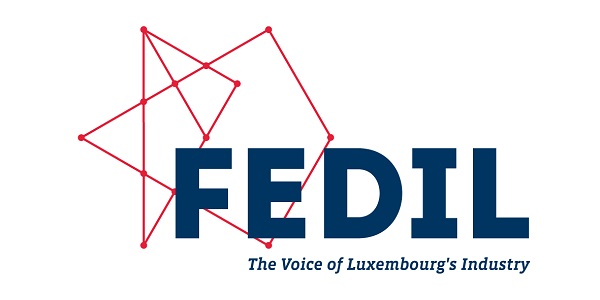
On Thursday 18 April 2024, "The Voice of Luxembourg’s Industry" - FEDIL published insights from its 2024 survey “The Qualifications of Tomorrow in Industry” relating to hiring forecasts for industrial companies in Luxembourg.
Compared to previous editions, which have alternated since 1998 between the industrial sector and the field of information and communication technologies, this new edition of the survey now brings together the two fields of activity to give an overview of all technical, digital and administrative profiles sought over two years. For the 2024 edition, the survey has been extended to all FEDIL member companies and will now be carried out every two years.
The survey on tomorrow's qualifications in industry constitutes a guiding tool for young people and their parents as well as for guidance managers. The objectives of the study consist of identifying the needs of businesses, reconciling training supply and demand in the interest of young people, providing an indicator for educational and professional guidance services as well as adapting training policy to economic realities.
In a rapidly changing labour market, FEDIL noted it is essential to ensure that initial vocational training effectively prepares young people to obtain the skills required to meet future hiring needs.
These needs are part of the double ecological and digital transition that companies are experiencing today, coupled with the emergence of new technologies, including artificial intelligence in particular, and ever-increasing administrative reporting obligations. To face these challenges, new skills are necessary and professions are expected to evolve. Also in this context, the survey aims to transmit the needs of its members and encourage initiatives that help them recruit the experts of tomorrow.
Survey Results
The 2024 survey identified 1,970 hiring forecasts, including 942 (47.8%) job creations and 1,028 (52.2%) departure replacements over the next two years. Even if, overall, the survey reveals a higher percentage of replacements than the percentage of job creations, the Luxembourg economy remains a net creator of jobs according to STATEC figures. The 1,970 hiring forecasts are distributed across construction professions (635), industry/industrial process professions (521), IT support professions (312), administrative support professions (267) as well as in transport professions (235).
These recruitment intentions were expressed by 109 companies that participated in the survey and alone represented 30,413 jobs. It should be noted that the participation rate (16.34%) was quite low. The cause of this low response rate most likely still lies in the lack of predictability of hiring for companies in a difficult economic context marked by inflation that is still quite high, the slowdown in construction activities and a slowdown in investment by companies.
Regarding the training courses most requested by industrial companies, the vocational aptitude diploma (DAP) comes far in the lead (36.2%), followed by the Bachelor's diploma (17.5%), then by the Technician (15.3%) and Master / Doctorate (15.1%). Traditionally, the BTS (10.2%) and the BAC (5.8%) are the levels of training least sought after by the sectors of activity falling within the scope of the survey.
Several institutional partners collaborated in this FEDIL survey, namely the Chamber of Commerce / House of Training, the Maison de l'Orientation, Luxembourg’s Ministry of Research and Higher Education as well as Luxembourg's Employment Agency (ADEM). Furthermore, the survey is part of the FEDIL HelloFuture project, an initiative aimed at promoting technical and scientific professions in industry among young people.
The brochure, detailing the conclusions of the survey and offering detailed information on the sectors covered as well as the training available, is accessible online on the sites www.fedil.lu and hellofuture.lu.









